Book of the Day Roundup: March 8-12, 2021
Adler
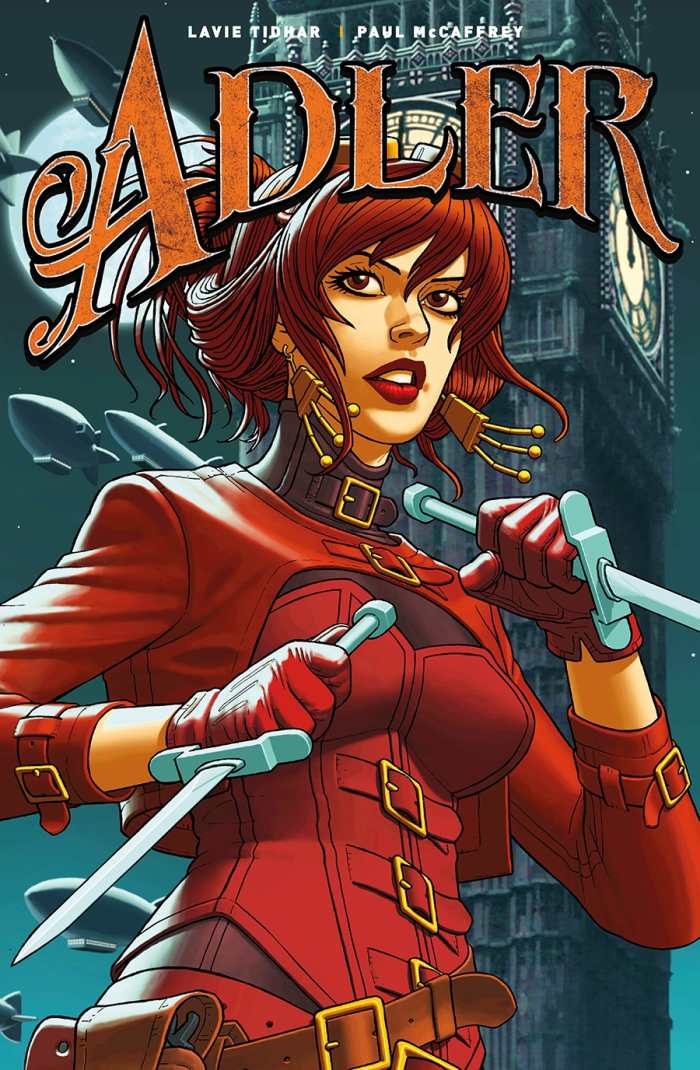
Lavie Tidhar
Paul McCaffrey, illustrator
Titan Comics
Softcover $16.99 (128pp)
978-1-78276-071-9
Buy: Local Bookstore (Bookshop), Amazon
A cast of famous fictional and real-life characters navigates a high-stakes, Victorian-era adventure in the exciting graphic novel Adler.
Irene Adler, first introduced in Arthur Conan Doyle’s Sherlock Holmes stories, takes the lead role in this book. She’s assisted by Jane Eyre, Marie Curie, and Lady Havisham. They battle against the machinations of Ayesha, a character from the 1887 novel She. Other characters include Carmilla, a vampire first introduced in a 1872 novella; Nikola Tesla; and a Queen Victoria kept alive by the skills of a certain Doctor Jekyll.
It’s great fun identifying these players, but the plot, involving a large-scale threat to humanity, keeps the focus on their current actions, not their origins. The story is clever and fast-paced, and its emphasis on women is refreshing and inspired. There are a few minor missteps in the storytelling and visuals, like abrupt transitions between scenes or movements that don’t always track from one panel to the next, as in a scene where one character, Rudolf, pulls a sword on Carmilla. But these are forgivable trade-offs for the dynamic art and rousing action story.
Adler inhabits a unique world, melding the historical and the fanciful. Comparisons to The League of Extraordinary Gentlemen, a comic book series that made similar use of fictional precedents, are inevitable, but with plenty of literary ground to mine, Adler feels fresh throughout. The book features a bonus gallery, but doesn’t provide information on the characters’ literary origins, a curious omission given the now-obscure status of some.
Adler is pure entertainment, establishing a strong, intelligent heroine and a foundation that leaves the door open for future (past) adventures.
PETER DABBENE (February 27, 2021)
The Kitchen without Borders
Recipes and Stories from Refugee and Immigrant Chefs
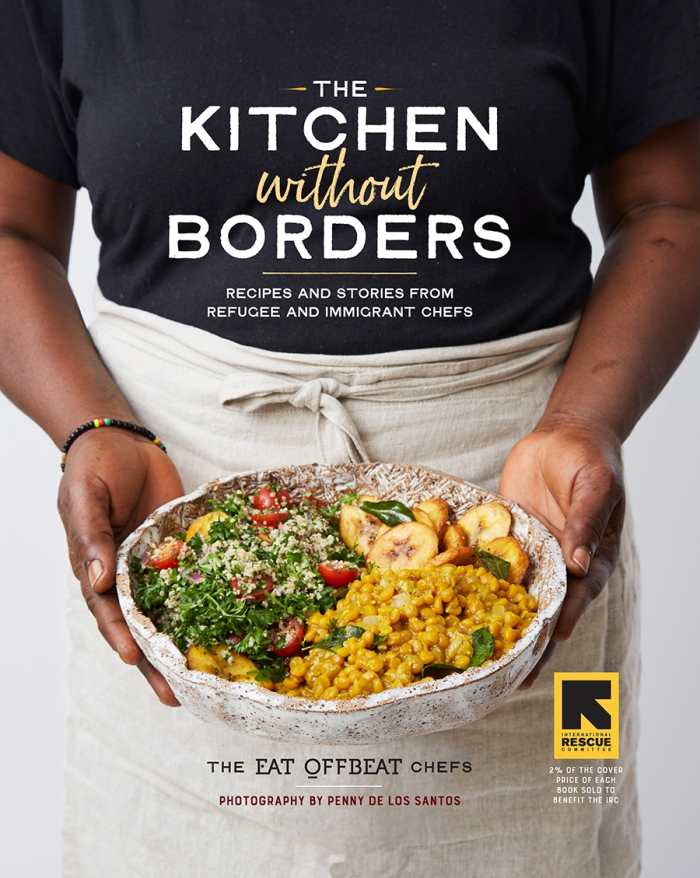
The Eat Offbeat Chefs
Workman Publishing
Hardcover $24.95 (232pp)
978-1-5235-0404-6
Buy: Local Bookstore (Bookshop), Amazon
Compiling recipes from refugee chefs of scattered origins, The Kitchen without Borders is a bridge-building cookbook.
The catering company Eat Offbeat began in 2015, with the award of a seed grant from Columbia University to sister and brother team Manal and Wissam Kahi. Its aims were two: to provide refugees with a safe and steady place of employment, and to introduce New Yorkers to cuisines with which they were perhaps less familiar.
From the now popular company come recipes for more familiar dishes, like curries, daal, moussaka, and hummus. The chefs’ instructions here are edifying. But the book also includes tempting recipes for less familiar plates, including mustard and lemon marinated chicken with cilantro; Sri Lankan coconut cabbage, featuring fennel and curry powder; and Afghani doogh, a blended yogurt drink with mint that’s often used to break the Ramadan fast. A glossary leads the project to introduce less familiar ingredients; recommendations for substitutes and places to purchase them are included for ease.
The chefs behind the recipes are honored with spreads that share their happy memories from family kitchens and celebrations. These take care to center the joys of home, rather than the troubles that led each to emigrate. The profiled chefs include Mariama, who came from Senegal, and for whom Eat Offbeat was her first job; and Diaa, a Syrian who’s owned and operated restaurants previously. Other chefs come from the Central African Republic, Nepal, and Venezuela—Eat Offbeat’s chefs come from fifteen nations in total. What each chef shares is nostalgia for home, and a desire to see the traditional dishes that spark their fond memories be embraced by New York eaters, too.
The Kitchen without Borders is a mouth-watering tour of global cuisines the puts a human face to each tantalizing new taste.
MICHELLE ANNE SCHINGLER (February 27, 2021)
Her Here
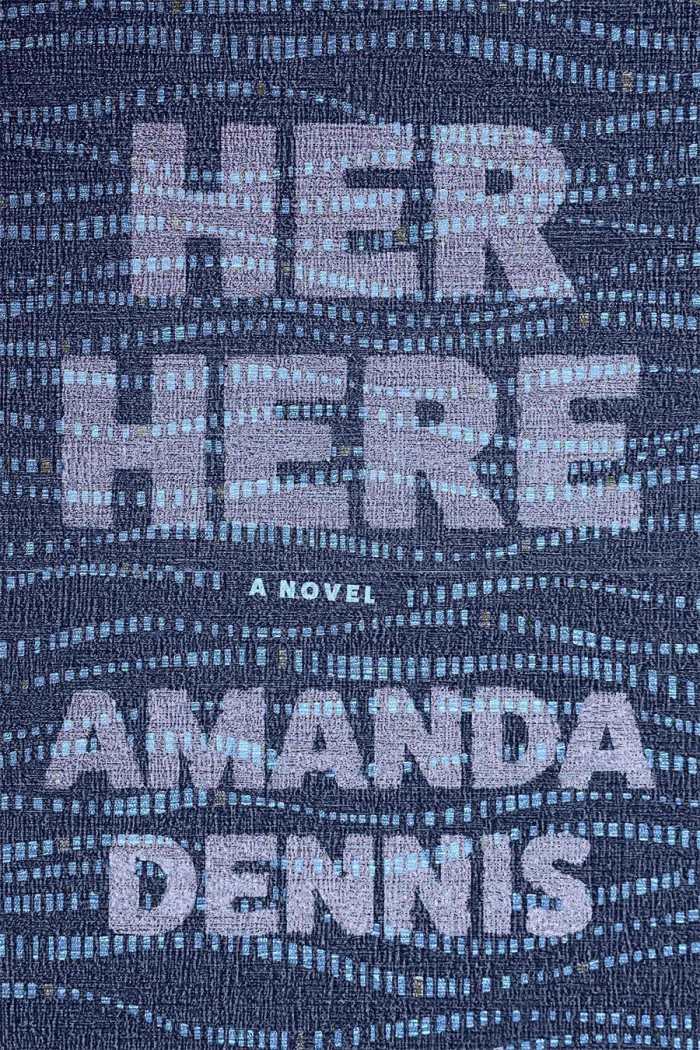
Amanda Dennis
Bellevue Literary Press
Softcover $16.99 (352pp)
978-1-942658-76-4
Buy: Local Bookstore (Bookshop), Amazon
In Amanda Dennis’s melancholy literary novel Her Here, a wounded graduate student translates the story of a fellow wanderer.
Since her mother died, Elena has shuddered her way through daily existence. She’s assigned herself new tasks, but has no clear sense of purpose. Her introduction to Siobhán, an old friend of her mother’s from her Parisian days, comes with an opportunity to escape this awkward, suspended state. Siobhán asks her to translate the poetic, near impenetrable diaries of her missing daughter, Ella, into something like a story.
Years ago, Ella ran away to Thailand, escaping the searing revelation that she was adopted. But life in Thailand was no pure escape. She made new friends at her teacher’s posting, all of whom were living with their own versions of deep pain. She fell into dangerous love with Seb, an expat afflicted with ennui and given to random acts of cruelty. In addition to monastic retreats, insightful discussions of Hemingway with her students, and long, hot, celebratory nights, Ella staggered her way toward new betrayals and disappointments. Eventually, the world lost track of her.
Immersing herself in Ella’s diary, Elena becomes something of a vehicle for Ella’s agonies and desires. She translates by night, and wanders the streets of Paris by day, seeing only the jungles of Thailand, hearing only the voices of Ella’s coworkers and found friends. And somewhere between Ella’s decision to relinquish the pain that is life, and the reemergence of her own buried memories, Elena is faced with a choice: to follow in the footsteps of the hurt women whose spirits she dwells among, or to choose vitality.
Wrenching and revelatory, Her Here is a novel about the barbs and possibilities that follow from the unexpected loss of what’s familiar.
MICHELLE ANNE SCHINGLER (February 27, 2021)
The Seed Keeper
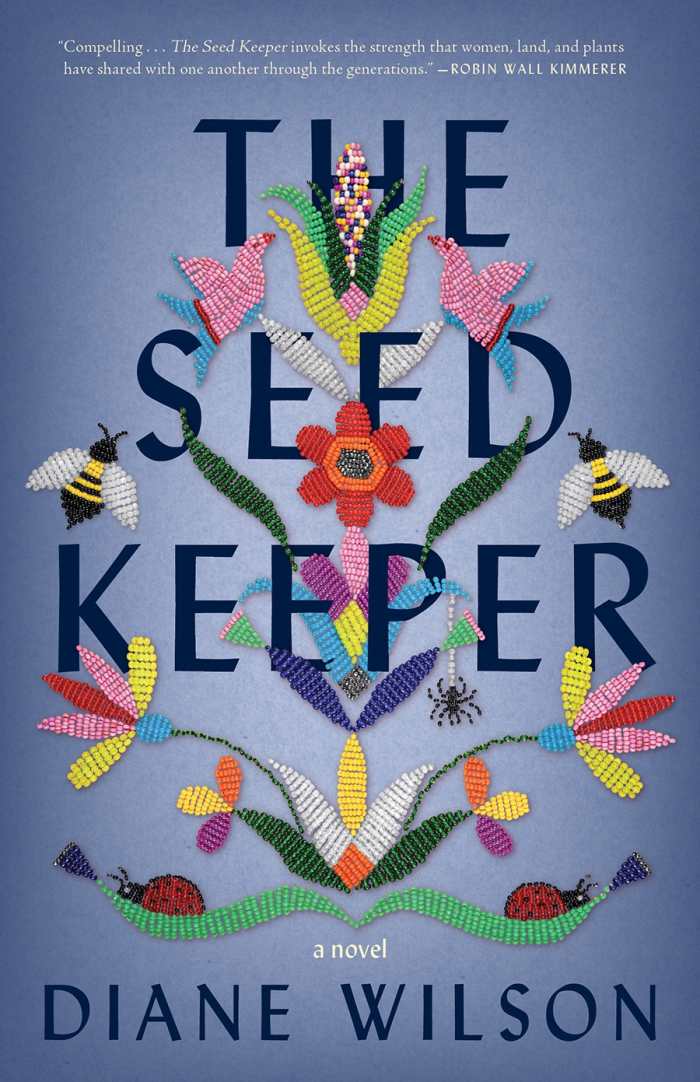
Diane Wilson
Milkweed Editions
Softcover $16.00 (400pp)
978-1-57131-137-5
Buy: Local Bookstore (Bookshop), Amazon
Told through the voices of strong, albeit fractured, women across generations, The Seed Keeper is a novel about legacies, generational trauma, and the inescapable call of one’s roots.
Rosalie’s mother died when she was four. She spent the next several years with her father, a Dakota man who raised her with deep reverence for the rugged, fertile land of southern Minnesota—land stolen from the Dakota people. When he dies, Rosalie is whisked into foster care, cut off from her family and her history.
Guided most by a desire for security, Rosalie marries a white farmer with whom she has a son, Tommy; cultural tensions define the next two decades of her life as she navigates being a Native woman in a white, Christian town that shuns her, despite being built on her ancestral home.
Upon her husband’s death, Rosalie returns to the abandoned cabin she once shared with her father. Reconnecting with family friends and relatives, including her great aunt Darlene, Rosalie finds that the home that she was denied never stopped waiting for her, dormant beneath the soil, ready to spring forth.
The cyclical nature of trauma is a core theme: Rosalie’s grandmother was kidnapped as a child and taken to a state boarding school; the abuse she endured left scars that she transferred to her daughter, Agnes, who committed suicide. Rosalie chafes against her husband’s profit-driven farming practices and his desire to suppress Tommy’s Native heritage, discouraging her from teaching him the traditional growing practices that were passed down to her. As an adult, Tommy is also caught between two poles: honoring his late father’s wishes, and respecting his mother’s roots.
With a focus on women who carry the scars of the past alongside hope for the future, The Seed Keeper is a profound novel about resilience and rebirth.
DANIELLE BALLANTYNE (February 27, 2021)
Blue Mar
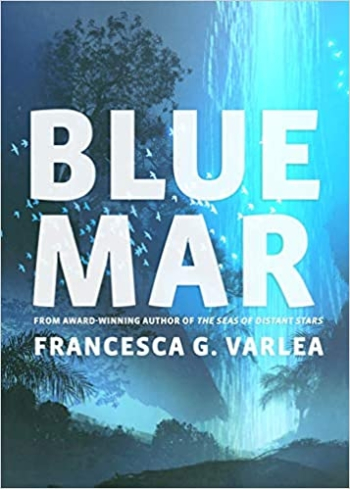
Francesca G. Varela
Owl House Books
Softcover $18.95 (280pp)
978-1-947003-64-4
Buy: Amazon
Two sisters find very different destinies in Francesca G. Varela’s novel Blue Mar.
Laurel and Paloma have never been to El Salvador, where their beloved Abuelo grew up; gang wars fueled by climate change have made Central America too dangerous to visit. After Abuelo’s unexpected death, they decide to go anyway. While spending the summer on their family’s farm—now endangered by flooding and extreme weather—both women find new perspectives on climate change, and new dreams to fight for.
The relationship between Laurel and Paloma is complex. While not estranged, they struggle to connect. Laurel is enthralled by a corporation’s failed attempt to turn plastic waste into an island resort, and how the place has become a rallying point for environmental activists seeking to build a self-sufficient utopia. Meanwhile, Paloma, who thought she had her future all figured out, now questions her plans in light of worsening climate change. The gap between the sisters widens thanks to their differing views on cultural identity, the human toll of climate change, and what humans owe to each other and the world.
The story’s poignancy is enhanced by its familiarity: though set in an unspecified future, the picture it paints of a world choking on plastic, droughts, wildfires, new diseases, and rising ocean levels is an eerie echo of current events. The world Laurel and Paloma inhabit—and the decisions they make—will very soon be a reality for too many people. Blue Mar’s ultimate message, however, is not one of despair. On the contrary, it shows that, even in hopelessness, there is hope—but it must be earned, not given.
Filled with poetic turns of phrase and foreboding visuals, Blue Mar is a science fiction novel about awakening to the reality that everyone is responsible for humanity’s well-being.
EILEEN GONZALEZ (February 27, 2021)
Barbara Hodge
